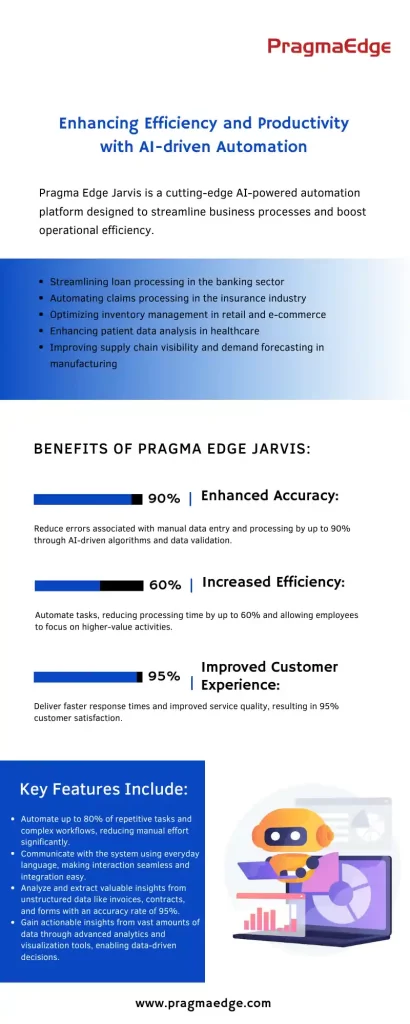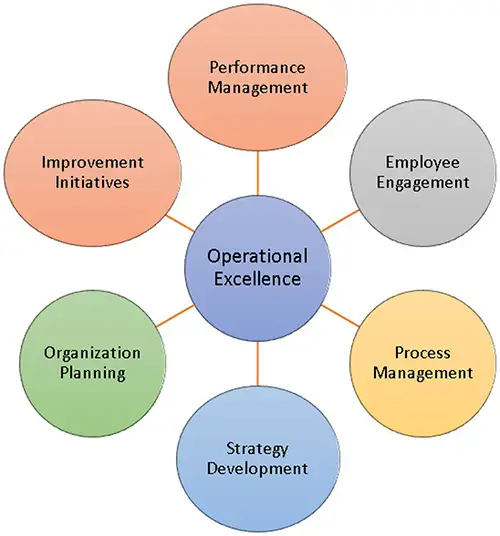
Have you ever wondered how artificial intelligence (AI) can revolutionize the way we make decisions and boost productivity? Well, get ready to be amazed because in this article, we’ll dive into the world of AI-driven decision support systems and explore how they can enhance productivity like never before. From analyzing vast amounts of data to providing real-time insights and recommendations, these intelligent systems are changing the game for businesses across industries.
Picture this: you’re a business owner trying to make a critical decision that could impact the future of your company. Instead of relying solely on your intuition or spending hours poring over spreadsheets and reports, imagine having a powerful AI-driven decision support system by your side. These innovative systems leverage the power of artificial intelligence to process and analyze massive amounts of data, extracting valuable insights and trends that would be impossible for a human to identify alone. By harnessing the immense computing power of AI, these systems provide real-time recommendations and predictions, empowering decision-makers to make informed choices quickly and confidently.
In the next paragraphs, we’ll explore the various ways AI-driven decision support systems enhance productivity and revolutionize decision-making processes across different industries. Get ready to discover the incredible potential of AI and how it can take your productivity to new heights.
AI-driven Decision Support Systems are revolutionizing productivity in various industries. By harnessing the power of artificial intelligence, these systems analyze vast amounts of data to provide valuable insights and recommendations to decision-makers. This enables faster and more informed decision-making, leading to increased productivity and efficiency. With AI’s ability to process data at unprecedented speeds, organizations can optimize operations, identify trends, and make better strategic choices. By leveraging AI-driven decision support systems, businesses can stay ahead in today’s competitive landscape and drive productivity to new heights.

How AI-driven Decision Support Systems Enhance Productivity
In today’s fast-paced business world, organizations are constantly seeking ways to optimize their productivity and efficiency. One technology that has gained significant attention and is revolutionizing the way businesses operate is AI-driven decision support systems. These systems leverage the power of artificial intelligence to provide valuable insights and recommendations, enabling organizations to make more informed decisions and ultimately enhance productivity. In this article, we will explore how AI-driven decision support systems can benefit businesses and improve their overall performance.
AI-driven decision support systems are designed to analyze vast amounts of data and extract meaningful patterns and insights. By leveraging machine learning algorithms, these systems can identify trends, correlations, and anomalies that may not be immediately apparent to human analysts. This enables organizations to make data-driven decisions based on accurate and up-to-date information. Furthermore, AI-driven decision support systems can continuously learn from new data, improving their accuracy and reliability over time.

One of the key benefits of AI-driven decision support systems is their ability to automate repetitive and time-consuming tasks. By automating data collection, analysis, and reporting processes, organizations can free up valuable time and resources that can be redirected towards more strategic initiatives. This not only improves productivity but also allows employees to focus on higher-value tasks that require human creativity and critical thinking.
Another way AI-driven decision support systems enhance productivity is by providing real-time insights and recommendations. Traditional decision-making processes often rely on historical data and manual analysis, which can be time-consuming and may not capture the dynamic nature of business operations. With AI-driven decision support systems, organizations can access real-time data and receive instant recommendations based on the current state of affairs. This enables faster decision-making and allows organizations to respond swiftly to changing market conditions or emerging opportunities.
Additionally, AI-driven decision support systems can help organizations identify and mitigate risks. By analyzing historical data and patterns, these systems can identify potential risks and provide proactive recommendations to mitigate them. This can range from identifying potential supply chain disruptions to predicting customer churn. By addressing risks before they escalate, organizations can avoid costly disruptions and maintain business continuity.
Furthermore, AI-driven decision support systems can improve collaboration and communication within organizations. By providing a centralized platform for data analysis and decision-making, these systems enable teams to collaborate more effectively. Decision-makers can access the same information and insights, facilitating alignment and consensus-building. This not only improves productivity but also fosters a culture of transparency and accountability.
In conclusion, AI-driven decision support systems have the potential to significantly enhance productivity in organizations. These systems leverage artificial intelligence to analyze data, automate tasks, provide real-time insights, and mitigate risks. By enabling data-driven decision-making and freeing up valuable resources, organizations can optimize their operations and achieve better outcomes. As businesses continue to embrace digital transformation, AI-driven decision support systems will play a crucial role in driving productivity and success.
Key Takeaways

- AI-driven decision support systems use artificial intelligence to assist in making better decisions.
- These systems analyze large amounts of data quickly, saving time and effort.
- By providing real-time insights, AI-driven decision support systems enable faster decision-making.
- These systems can predict future outcomes based on historical data, helping businesses plan more effectively.
- AI-driven decision support systems automate repetitive tasks, freeing up time for more valuable work.
Frequently Asked Questions
How can AI-driven decision support systems enhance productivity?
AI-driven decision support systems can enhance productivity by providing valuable insights and recommendations to help businesses make more informed decisions. These systems leverage advanced algorithms and machine learning to analyze large amounts of data and identify patterns, trends, and correlations that humans may not be able to detect. By automating data analysis and decision-making processes, AI-driven decision support systems can save time and resources, allowing employees to focus on more strategic and value-added tasks.
Furthermore, these systems can also improve productivity by reducing the risk of human error. AI algorithms are designed to be highly accurate and consistent, minimizing the chances of making mistakes or overlooking important details. This can lead to better decision-making and more efficient processes, ultimately enhancing overall productivity within an organization.
What are the key features of AI-driven decision support systems?
AI-driven decision support systems typically have several key features that contribute to their effectiveness in enhancing productivity. Firstly, these systems are capable of processing and analyzing large volumes of data at a much faster rate than humans. This enables organizations to make decisions based on real-time and up-to-date information, resulting in more timely and relevant actions.
Secondly, AI-driven decision support systems are equipped with advanced analytics capabilities. They can uncover hidden insights and patterns within data, enabling organizations to identify opportunities and make data-driven decisions. Moreover, these systems can also provide predictive analytics, allowing businesses to anticipate future trends and make proactive decisions to stay ahead of the competition.
How can AI-driven decision support systems improve decision-making processes?
AI-driven decision support systems can improve decision-making processes by providing objective and data-driven insights. These systems are not influenced by personal biases or emotions, allowing for more objective analysis and evaluation of options. By considering a wide range of data points and variables, AI-driven decision support systems can provide a holistic view of the situation, enabling organizations to make more informed and strategic decisions.
In addition, these systems can also help in identifying potential risks and uncertainties associated with different decision alternatives. By simulating different scenarios and conducting risk analysis, AI-driven decision support systems can assist in evaluating the potential outcomes and consequences of different decisions, helping organizations make more risk-aware decisions.
What are the potential challenges of implementing AI-driven decision support systems?
Implementing AI-driven decision support systems may come with certain challenges. One challenge is the availability and quality of data. These systems rely on vast amounts of data to train their algorithms and provide accurate insights. If an organization’s data is incomplete, inaccurate, or outdated, it may impact the effectiveness and reliability of the AI-driven decision support system.
Another challenge is the integration of AI-driven decision support systems into existing processes and workflows. Organizations may need to make adjustments to their systems and infrastructure to accommodate the implementation of these systems. Additionally, there may be resistance or skepticism from employees who may fear job displacement or distrust the accuracy of AI-driven recommendations.
How can organizations ensure the successful implementation of AI-driven decision support systems?
To ensure the successful implementation of AI-driven decision support systems, organizations should start by clearly defining their objectives and identifying the specific areas where these systems can provide the most value. This will help in selecting the right AI-driven decision support system and aligning it with the organization’s goals.
Organizations should also invest in data quality and data governance processes to ensure that the data used by the AI-driven decision support system is accurate, reliable, and up-to-date. This may involve data cleansing, data integration, and establishing data management practices.
Furthermore, organizations should provide proper training and education to employees to help them understand the capabilities and benefits of AI-driven decision support systems. This can alleviate concerns and resistance, and encourage employees to embrace the technology as a tool to enhance their productivity and decision-making capabilities.

Final Thought
In today’s fast-paced world, where time is of the essence, businesses are constantly seeking ways to enhance productivity and efficiency. One groundbreaking solution that has emerged is the implementation of AI-driven decision support systems. These intelligent systems have proven to be a game-changer, revolutionizing the way organizations make informed choices and ultimately boosting productivity levels.
By harnessing the power of artificial intelligence, decision support systems provide invaluable insights and recommendations that aid in better decision-making. They analyze vast amounts of data, identify patterns, and generate accurate predictions, all at a speed and precision that surpass human capabilities. This not only saves time but also eliminates the risk of human error, ensuring that organizations can make well-informed decisions quickly and confidently. With the ability to process and interpret data in real-time, these systems empower businesses to adapt swiftly to changing market conditions and seize opportunities as they arise.
Moreover, AI-driven decision support systems streamline workflows and automate repetitive tasks, freeing up valuable time for employees to focus on high-level strategic activities. By taking over mundane and time-consuming processes, these systems enable workers to allocate their skills and expertise to more meaningful and impactful endeavors. This not only enhances productivity but also fosters a sense of job satisfaction and fulfillment among employees, leading to a more engaged and motivated workforce.
In conclusion, the integration of AI-driven decision support systems is a proven strategy for enhancing productivity in today’s dynamic business landscape. These intelligent systems provide valuable insights, streamline workflows, and empower organizations to make well-informed decisions swiftly. As businesses continue to embrace the power of AI, they will undoubtedly unlock new levels of productivity and efficiency, propelling them ahead in the competitive market. So, embrace the potential of AI-driven decision support systems and unlock a world of enhanced productivity and success.




